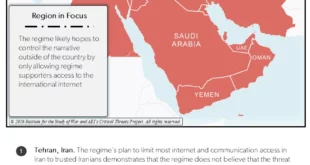Lebanon’s parliament is unlikely to elect a new head of state on Friday in the last few hours of pro-Syrian President Emile Lahoud’s term, because rival leaders have failed to clinch a deal despite French-led mediation.“We wait for tomorrow without much hope,†French Foreign Minister Bernard Kouchner told reporters in Beirut, flanked by his Spanish and Italian counterparts, who have been trying to forge a deal between the deeply divided leaders.
The election has already been postponed four times because the anti-Syrian governing coalition and its Damascus-backed opponents have been unable to agree on a candidate.
Many fear failure to agree on a new president could lead to rival administrations and violence in a country still rebuilding from its 1975-1990 civil war. Italian Foreign Minister Massimo D’Alema said a deal seemed almost impossible by Friday.
Christian leader Michel Aoun, an ally of the Hizbollah-led opposition and their candidate for the post, proposed the election of someone named by him as a way out of the crisis.
But a political source close to the governing coalition said the idea would be rejected. Aoun said the candidate, whom he did not name, would not belong to his parliamentary bloc and would be replaced after legislative elections in the spring of 2009.
Leader of the largest Christian bloc in parliament, Aoun has insisted the presidency is rightfully his. The post is reserved for a Maronite Christian under Lebanon’s sectarian power-sharing system.
Lahoud has said he will take action before leaving office if there is no deal. He has not said what he plans to do, but one option is asking the army to take over.
“I stand by my position that this government is illegitimate and unconstitutional. If it thinks it can go on without the election because of outside backing, it will bring catastrophes on the country sooner or later,†Lahoud told a Hizbollah-led delegation.
“Therefore, even if I stand alone, there are duties I must perform,†he said.
Mutual recriminations
Lahoud and the opposition say Fuad Siniora’s government lost its legitimacy when all its Shiite ministers resigned last year.
The anti-Syrian majority argues that Siniora’s government would automatically take over presidential powers until a new head of state can be elected, a view supported by the European ministers. Some governing coalition members favour using their majority to pick a president in the absence of a deal.
Political sources, who asked not to be identified, said there was little chance the two sides would agree or that parliament would be able to choose a new president on Friday.
The United States and its local allies blame Syria for the deadlock. Hizbollah and its Christian allies say the US-backed majority wants to keep them from their rightful share in power and accuse Washington of trying to control Lebanon.
Troops and police tightened security in Beirut ahead of the scheduled parliamentary session. There was no military parade or other key events to mark the 64th anniversary of independence.
The ruling coalition holds only a slim majority and the opposition says the vote requires two thirds of the MPs.
“If [Lahoud’s] term ends without consensus, the opposition will take its rolling measures in response to those of the other side,†Mohammad Raad, head of Hezbollah’s parliamentary bloc, told reporters after meeting the president, without revealing the well-armed Shi’ite group’s plans.
 Eurasia Press & News
Eurasia Press & News



